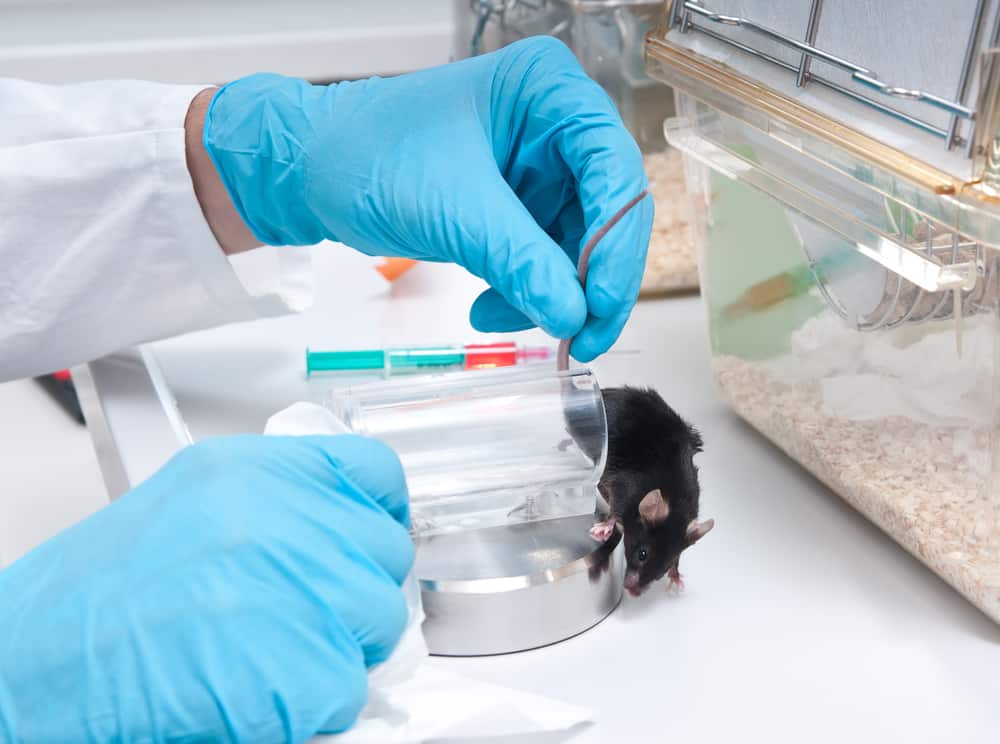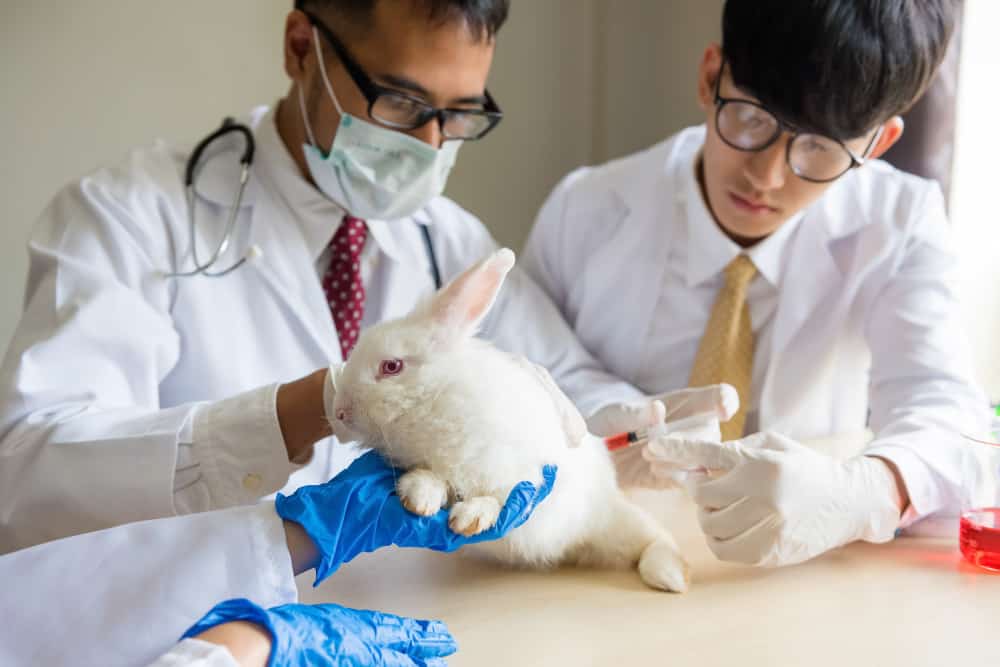Animal testing has been around since the 4th century BCE when the Ancient Greeks performed some of the first experiments on living animals. For years it has been used to test products to determine their level of safety for humans. In recent years though, there has been a push to ban animal testing, especially in Japan.
Over 40 different countries worldwide have passed laws to ban or limit animal testing within their borders. Japan has taken some steps towards getting on board with the rest of the world but is still far behind where it should be. Read on to find out what steps Japan has taken and how far they still have to go before animal testing stops.
Japan Is a Top Ten Animal Testing Country
Even with a worldwide push towards ending animal testing, there are still a few countries that test on animals quite regularly. Japan falls to number three on the top ten list, closely behind the U.S. and China at number one in the world.
Top 5 animal testing countries:
Type of Test | Approximate Number of Animals Used for Testing |
|---|---|
20.5 million (2015) | |
Over 15 million (2015) | |
Japan | 15.0 million (2015) |
4.5 million (2019) | |
Unclear (21 million in 2017) |
These numbers are approximate for Japan since animal testing is self-regulatory there. Anyone can create and establish an animal testing facility for free without acquiring any permits or registration.
As a result, surveys and other means of finding the exact number of animals are not always accurate because companies do not have to give up that information.
These sorts of surveys are also not conducted regularly. Due to this, there could quite possibly be more animals being tested on than we know.
Every Two Seconds an Animal Dies in a Lab in Japan
Every time you take a breath, an animal in Japan is taking its last one because of experimentation. Every two seconds, an animal completes its job as a test subject and dies so that people who buy that company's products can feel safe using them.
In comparison to the United States, Japan is not doing too bad at two seconds because, in the U.S., it is every one second. However, in the United Kingdom, it is every 12 seconds.
These stats seem high, but especially so when you realize that, in general, only 3% of animals survive animal testing. 97% of about 15 million test subjects dying shows you how big an issue it is for these innocent animals.
Interestingly, unlike the EU that has banned all cosmetic testing – a country that has managed to bypass certain cruelty-free cosmetic laws is Ireland, read this article to see how they did it: 6 Important Animal Testing Facts About Ireland
Japan Tests on Different Types of Animals
When people think of animal testing, they often think of mice and rats. However, in many countries, including Japan, tests are conducted on a variety of animals, including:
Many livestock animals are tested on as well, making this list of test subjects rather large.
Animals Get Tortured for No Reason
In Japan, animals go through a series of painful experiments to test our products. Companies, like the following, admitted to using harsh testing procedures on animals before deciding to commit to using alternative methods:
These companies used deadly testing methods on animals like many companies in Japan still do today. They have even decided to use alternative methods except when required by law to use animal testing. Severely unethical anima treatment is still prominent there and includes things like:
Very few of these experiments are required by law in Japan. This means that those animals suffered when they did not need to. Not to mention, these are just some of the cruel experimental procedures that animals are subject to in laboratories.
Japan Requires Animal Testing for Some Products
In Japanese law, there are some instances when animal testing is required. Whenever a company does not have enough human data or experience for their products, they must conduct animal testing. As a result, many new companies have to use it.
Animal testing is also required for cosmetics when you add new ingredients that have:
Additionally, when you add any ingredient to a quasi-drug, it requires animal testing as well.
Japan Has No Laws to Ban Animal Testing
Although animal testing is only required in certain instances, it is allowed for every product. There is no legislation in place to prevent companies from using animal testing to measure the safety of their products. Therefore, businesses can continue to use animal testing as a viable solution, even when it is not necessary.
Japan Has Vague Animal Welfare Legislation
When it comes to animal welfare in general, Japan has very vague legislation. The laws provide very minimal protection for all animals, including those that are used for testing.
As of 2019, Japan had not added any amendments to its Animal Protection Index since its 2014 modifications. The legislation surrounding the welfare of animals is spread out amongst multiple ministries and is not well organized.
As a result, animals are suffering not only in laboratories where they are tested on, but also in homes and on farms.
Consumer Awareness of Animal Testing Is Low
One of the main reasons Japan lacks such important legislation is because consumers in Japan are not well informed. In 2016, Lush Japan conducted a survey and determined that only 28.7% of respondents had heard of animal testing for cosmetics.
Once these respondents were informed on what animal testing was, 70% stated that they did not want to make animals suffer. A survey like this shows that most people in Japan would be interested in stopping animal testing if they knew it was happening.
Educating the individuals of Japan is a crucial step to start to persuade the Japanese government into implementing laws that ban animal testing. If people remain uninformed, innocent animal lives will continue to be lost every two seconds.
JAVA Wants to Stop Animal Testing in Japan
Some groups in Japan are looking to stop animal testing. A popular citizen group that was established in 1986, JAVA, is short for Japan Anti-Vivisection Association.
For those of you who may not be aware, vivisection is another word for the practice of experimenting on live animals.
JAVA's mission is to end animal testing in Japan and protect all animals. They attempt to educate the public about the abuse animals endure during testing and how it can be easily avoided using modern-day alternatives.
They also hold panel exhibitions and petition research institutions to stop using animal testing.
This group has successfully convinced multiple companies to stop using animal testing, and they aim to continue their quest until all businesses in Japan use alternative methods. If groups like this continue to be successful, we may see Japan implement legislation that bans animal testing.
Will Japan Go Cruelty-Free?
As the world shifts to cruelty-free ways to test products, Japan has more pressure to evolve with it. Although Japan lacks the necessary legislation to prevent unneeded animal testing, there is hope that this will change as groups like JAVA continue to educate the public.
Once the people of Japan become aware of the high numbers of animal deaths that occur when safe, more accurate tests are available, we will see a shift away from animal testing. Japan has a long way to go before groups like JAVA's work is done, though.


